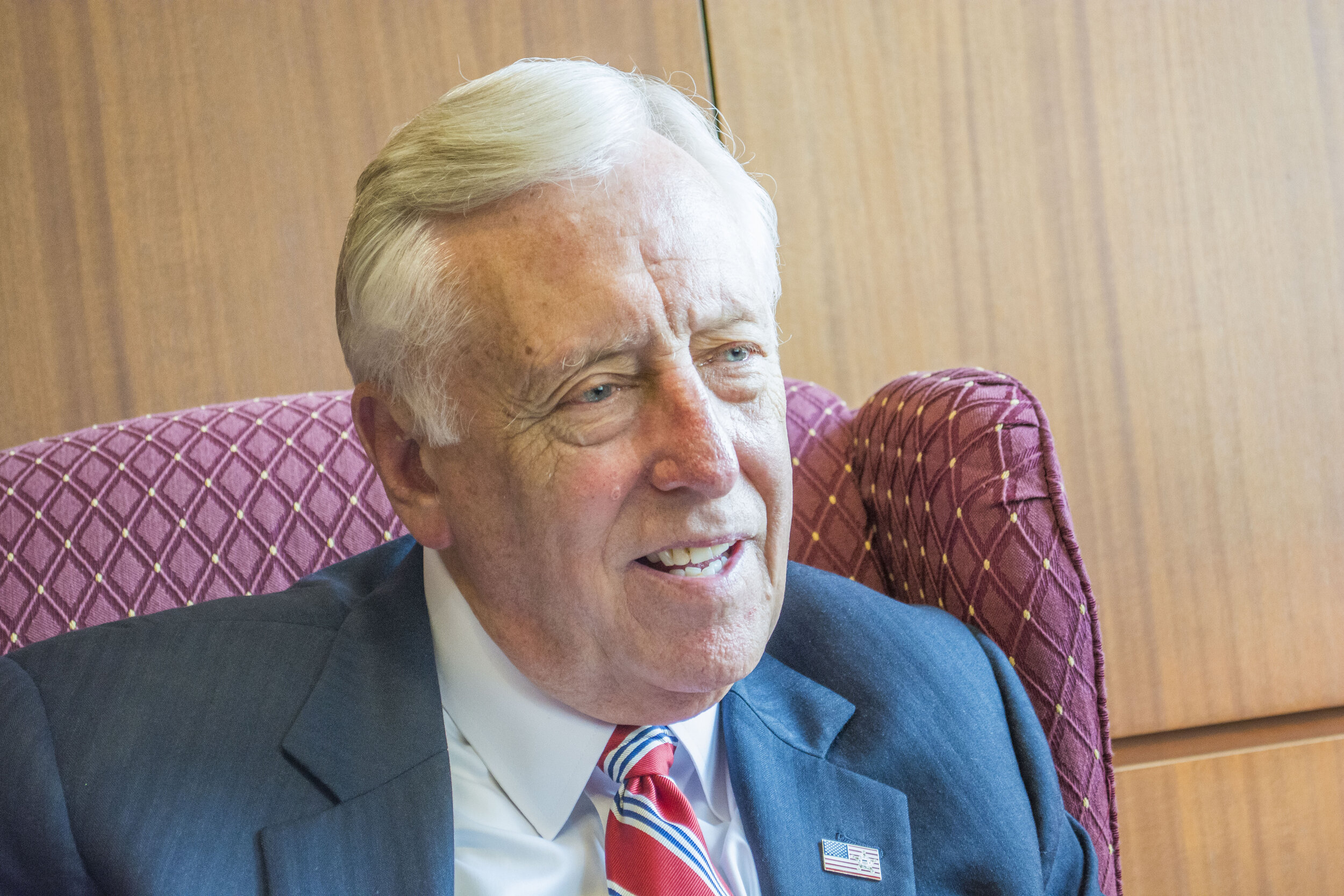What About The Children?
Hoyer, Brown Lead Town Hall Discussion on the Impact of COVID-19 on The Lives of Maryland Children
By Raoul Dennis
Given their tone at the Sept 2 town hall meeting, it appears that the kid gloves are off for House Majority Leader Steny Hoyer (D-District 5) and Congressman Anthony Brown (D- District 4) (for full video of the event, click here). Both leaders expressed considerable passion and commitment with regard to the discussion of the effects of COVID-19 on the lives of children in Maryland.
“Millions of families in our state are facing unprecedented child care challenges due to the COVID-19 pandemic. House Democrats passed the Heroes Act over three months ago, which would provide significant funding to our state to support teachers, parents, and students,” Hoyer said. “The Heroes Act would also provide billions of dollars of funding directly to communities to help families with child care needs. I continue to urge Senate Republicans to take up this important legislation, and help Maryland families.”
Some $60 million of the Heroes Act would be directed toward child care services, according to reports. Another $100 billion would be aimed toward emergency education funding. That amount is only a portion of all the services and support that would be directed toward Maryland families if the $3.4 trillion bill were to ever be passed by both houses and see the light of day.
Maryland seeks to direct $45 million toward technology equipment and broadband services and another $750 million for Headstart from the CARES Act. “We passed a bill for the children, for the families, for the unemployed and it sits unattended on the desk of (Senate Majority Leader) Mitch McConnell. We wanted to demonstrate today how serious…the consequences are of that refusal to act… and the challenge it’s causing our children,” he said.
“We passed the legislation and I will come back to Congress as soon as the Senate does something,” Hoyer said.
“It’s not enough to simply declare on Twitter that we are re-opening schools and returning to normal. We need an actual plan to address this public health and economic crisis, to get resources to communities, schools and families in need and we need to do it quickly,” said Rep. Brown. “The Trump Administration and Senate Republicans have refused to even meet us even halfway: choosing inaction, half measures and political stunts instead of delivering actual aid to those in need.”
Brown drew attention to the fiscal challenges that states and municipalities are facing across the nation. In one example, he pointed out the loss of some 900,000 public school employees who have lost their jobs thus far. “Without aid, another half-million may lose their jobs as well. This is unacceptable.”
The Heroes Act also addresses safety and PPE concerns, sanitizations and ventilation systems upgrades, buildings repair, job security to prevent further layoffs, mental health services, securing breakfast, lunch and after school programs and a variety of other facets of creating stability through the storm of the pandemic.
At the heart of the discussion: money and resources to aid every aspect of education, safe return to schools with an eye on the psychological and social needs that children and teachers will need. Leaders asserted that it is unreasonable to expect schools to fully reopen without adequate resources and financing to make reopening safe and effective.
The congressman also addressed the disparities brought to light by the pandemic.
“While white students are expected to lose six months of learning due to the pandemic, black students, studies are already showing, could face a loss of 10 months or more,” said Brown. “Without additional federal action, special education students and individuals with disabilities could see disproportionate cuts to services and aid.”
At the heart of the discussion: money and resources to aid every aspect of education, safe return to schools with an eye on the psychological and social needs that children and teachers will need. Leaders asserted that it is unreasonable to expect schools to fully reopen without adequate resources and financing to make reopening safe and effective.
Panelists represented a range of professionals and leaders within the academic and child welfare communities (see window pane panel graphic above).
Key Points
•Mental health and child abuse numbers of cases are already rising as a result of the pandemic.
•Childcare remains a critical unresolved question as children are distance learning at home and parents must go to work
•There is a critical need to study what other nations have done with regard to children, education and COVID 19 successfully. This requires funding and analysis.
•There must be a discussion, plan and implementation of action to change the racial disparity that children are facing and to address the mental impact that it has upon them. Children are seeing the George Floyd case and others and they are watching how we are dealing with it.
•We must accept and give further thought and study to the fact that we don’t have enough understanding of what the disease does the kids in the short and long-term. What impact will all this have 15 or 20 years from now? We need to advance more study of this and what we know now and apply that as a part of moving forward.
•There are immense food insecurities as a result of the virus and layoffs. That has an impact on the needs of children even as we attempt to reopen schools on a daily and weekly basis. More funding will be required in this area, not less
•Funding is needed for constructive and basic safety mechanisms for returning to school. This includes Plexiglas, masks, disinfectants, gloves, and a reorganization of classroom structures in order to encourage and effect proper social distancing. Currently, each district has to raise money to get this kind of thing done. That is not an effective strategy to get all children back to school safely.
•Working parents are facing anxiety from multiple angles. It is important therefore that reopening the schools reinforces a sense of safety and security. They want their children to be healthy, they want the other children in school to be healthy, they want to be sure their children will not bring home illness and make the family sick. Addressing the concerns of parents and teachers is an integral part of this discussion.
•Suicide rates, runaways and other social and mental health issues are already increasing as young people face the loss of friends due to not going to school because of COVID, elders, and a lack of normalcy for the past six months. Funding will be needed to counteract these increasing numbers.










